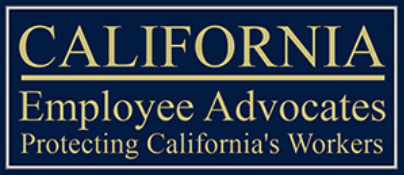The definition of wrongful termination can be a tricky thing to navigate. Many people do not realize they have been wrongful terminated. For many, it can be years until they conclude that it has happened to them. The best way to spot it is to know exactly what it is. So, let’s answer the question: what is wrongful termination?
The Definition Of Wrongful Termination
The best place to find definitive legal answers to employment law questions will always be on the U.S Department of Labor website. However, the site does not define wrongful termination explicitly. Wrongful termination is a legal term that can cover an array of unlawful acts by an employer. In the simplest of terms, the definition of wrongful termination is firing someone for an illegal reason. The most common unlawful reason for the unlawful firing is for any type of discrimination. So it is also essential to know the causes and types of discrimination, which the U.S Department of Labor website lays out.
How Discrimination Factors Into Our Definition of Wrongful Termination
When defining wrongful termination, discrimination plays a big part. Discrimination is the unfair treatment of a protected group. The U.S Department of Labor lists these protected groups.
Age Discrimination
An example of age discrimination would be not hiring someone or not giving them a promotion because they are too old. People over 40 are just as valuable to the workforce and should be treated the same by their employers. Employees should be judged for their work and not by their age.
For example, let’s say Sally is up for a promotion at work and approaching 55 years of age. She is five years away from retirement age, and her boss doesn’t want to have to fill her position again in five years. Sally is passionate about her job and hopes to work there and keep excelling for years to come. The boss has made assumptions based on her age and decided to fire Sally and avoid the problem altogether. This is a clear definition of wrongful termination based on age discrimination.
Gender Discrimination
Employment law both in California and nationally states that employers must treat male and female workers equally. Unfortunately, this is not always the case, and when a woman is treated differently because of her gender, that is discrimination.
As an example, a woman named Olivia works as a nighttime security guard. As an ex-police officer, she has just as much, if not more, experience as the men at her job. Regardless of this, coworkers constantly ridicule her, saying she’s not strong or tough enough to do the job. Her male coworkers and supervisors make comments about her gender in the male-dominated field. Eventually, Olivia’s boss lets her go, and they bring on a new, less-qualified male employee to replace her. Here is a clear example of wrongful termination based on gender discrimination.
Ignoring Protected Leave
Both in California and Nationally, there are protections in place for employees who have to take leave to care for themselves or a family member. Laws protect workers from being fired while on this kind of break.
Let’s look at an example. Bruce has taken three weeks off to care for his sick father. Two weeks into his family medical leave time, he receives a call from his boss saying he has missed too many days of work and fires him. In this scenario, Bruce’s employer has wrongfully terminated him and violated the Family Medical Leave Act.
There are many other circumstances than those listed here that may be considered wrongful termination. Other examples include: break of employee contract, retaliation, failure to provide proper accommodations, sexual harassment, and more. These all work into the definition of wrongful termination. Getting justice for this unlawful act is a nuanced legal procedure, so it is necessary to hire the right employment law attorney.
*Disclaimer: This article post is not meant to substitute for legal aid or give legal advice. If you or someone you know requires legal aid, please reach out to a qualified attorney. California Employee Advocates is not a law firm.


I have read a few of the blog posts on your blog these few days, and I truly like your way of blogging. I added it to my favorites site list and will be checking back soon. Please check out my site too and let me know your thought.